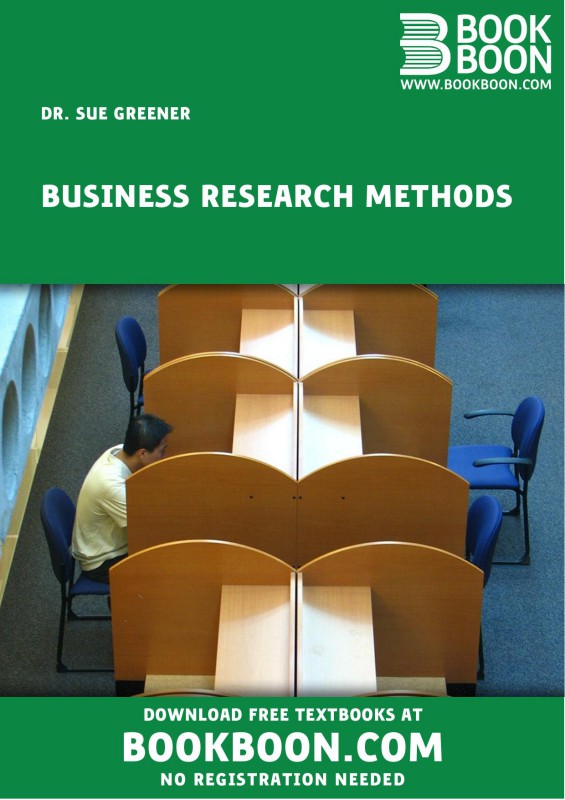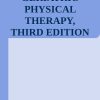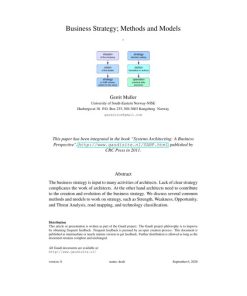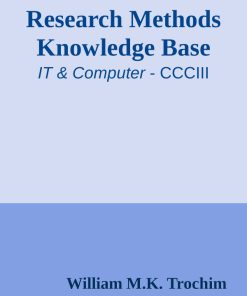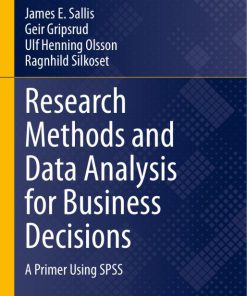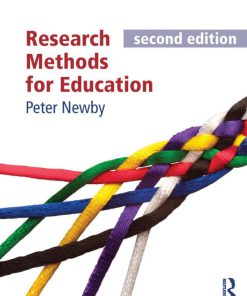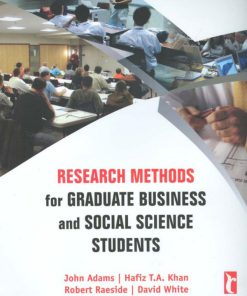Business Research Methods 1st Edition by Sue Greener 9788776814212
$50.00 Original price was: $50.00.$25.00Current price is: $25.00.
Authors:Dr. Sue Greener , Author sort:Greener, Sue , Languages:Languages:eng
Business Research Methods 1st Edition by Sue Greener – Ebook PDF Instant Download/Delivery. 9788776814212
Full download Business Research Methods 1st Edition after payment

Product details:
ISBN 13: 9788776814212
Author: Dr. Sue Greener
Business Research Methods 1st Table of contents:
1. Research problems and questions and how they relate to debates in Research Methods
1.1 Chapter Overview
1.2 Introduction
1.3 The nature of business research
14 What kind of business problems might need a research study?
1.5 What are the key issues in research methods we need to understand?
1.6 Questions for self review
1.7 References
2. Putting the problem into context: identifying and critically reviewing relevant literature
2.1 Chapter Overview
2.2 How does literature relate to research?
2.3 What kinds of literature should we search for?
2.4 Effective literature searching
2.5 Critical analysis of literature
2.6 Using Harvard referencing style
2.7 Questions for self review
2.8 References
3. Choosing research approaches and strategies
3.1 Topic Overview
3.2 Different perspectives of knowledge and research which underpin research design
3.3 Identify differing research paradigms for business
3.4 Key differences between qualitative and quantitative research methods and how and why they may be mixed
3.5 Criteria of validity and reliability in the context of business research
3.6 Your choice of research strategy or design
3.7 Questions for self review
3.8 References
4. Ethics in business research
4.1 Chapter Overview
4.2 How ethical issues arise in business research at every stage
4.3 Ethical criteria used in Higher Education business research studies
44 Strategies to ensure ethical issues in business research are addressed appropriately
4.5 Questions for self review
4.6 References
5. Choosing samples from populations
5.1 Chapter Overview
5.2 How and why sampling relates to business research
5.3 A range of probability and non-probability sampling techniques
54 Selecting appropriate techniques for different research studies
5.5 Assessing representativeness of samples and generalisability from samples
5.6 Questions for self review
5.7 References
6. Quantitative research methods: collecting and analysing quantitative data
6.1 Chapter Overview
6.2 Anticipating how the research design is affected by data collection and analysis tools
6.3 Recognising different types of data for analysis
64 Coding and Entering data for computer analysis
6.5 Choosing appropriate ways to present data through charts, tables and descriptive statistics
6.6 Selecting appropriate statistical tools for the research variables
6.7 Questions for self review
6.8 References
7. Questionnaire design and testing
7.1 Chapter Overview
7.2 Difficulties associated with questionnaire design
7.3 Choosing from a range of question formats
74 How to design, pilot and administer questionnaires
7.5 Questions for self review
7.6 References
8. Using secondary data
8.1 Chapter Overview
8.2 What to look for as secondary data and where to find it
8.3 The contribution of secondary data to business research
8.4 The disadvantages of using secondary data in business research and how to overcome them
8.5 Questions for self review
8.6 References
9. Qualitative rescarch methods: collecting and analysing qualitative data
9.1 Chapter Overview
9.2 Key issues in qualitative data analysis
9.3 The range of qualitative research methods applicable to different research topics
9.4 How qualitative data can be prepared for analysis
9.5 Computer based methods for qualitative data analysis
9.6 Questions for self review
9.7 References
10. Practical issues in conducting interviews, focus groups, participant observation
10.1 Chapter Overview
10.2 Practical considerations relating to participant observation
10.3 Practical issues relating to interviews
10.4 Practical issues relating to focus groups
10.5 Questions for self review
10.6 References
11. Forecasting trends
11.1 Chapter Overview
11.2 Why forecasting is not widely covered in the business research methods literature
11.3 Existing methodologies for forecasting
11.4 Basic forecasting tools
11.5 Measures commonly used to evaluate forecasts
11.6 Exploring the value of forecasting methods in business practice
11.7 Questions for self review
11.8 References
12.
Presenting research reports
12.1
Chapter Overview
12.2
Your personal approach to writing a report
12.3 The differences between writing a report for a business audience and for academic purposes
12.4 Producing an oral presentation of key findings
12.5 Questions for self review
12.6 References
People also search for Business Research Methods 1st:
7 research methods
5 research-backed studying techniques
5 types of research methods
4 methods of market research

